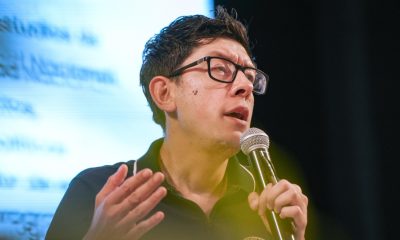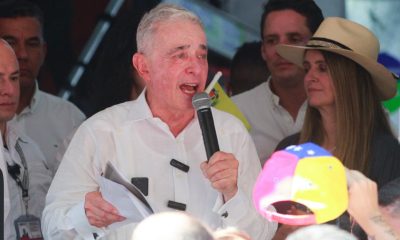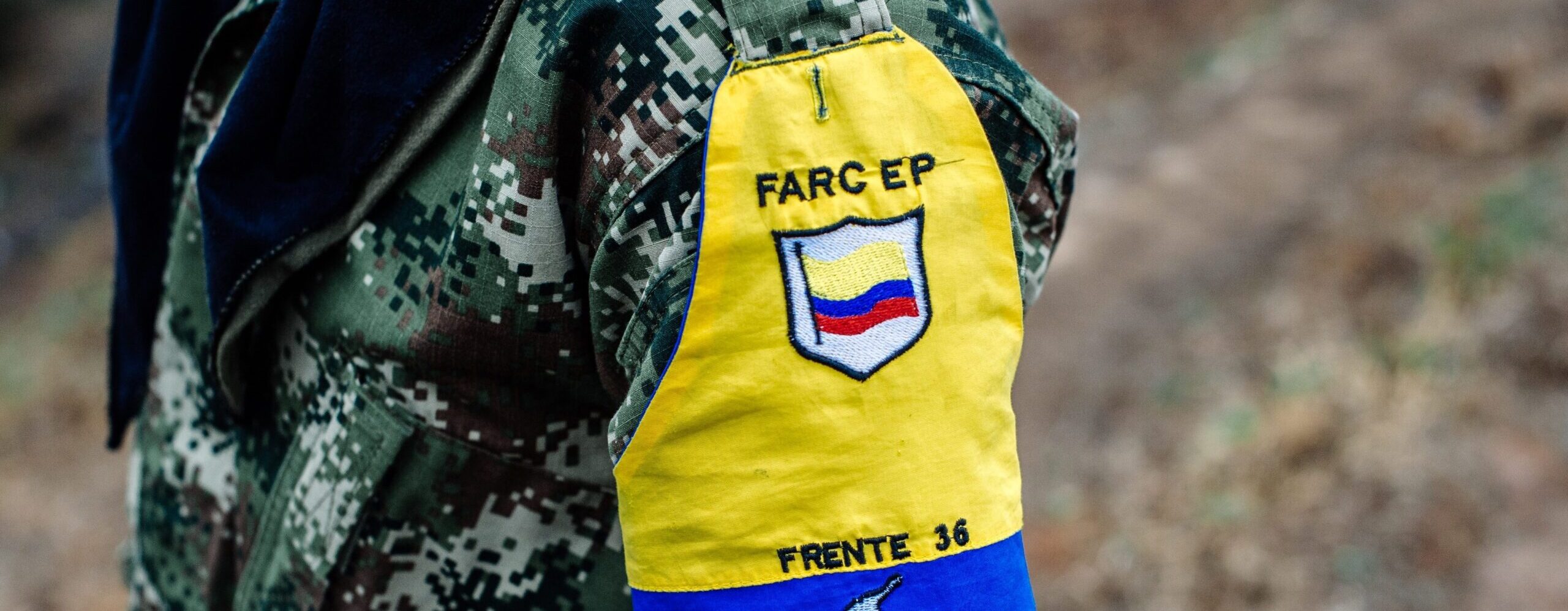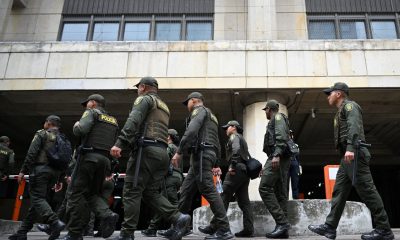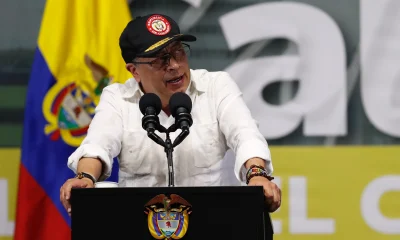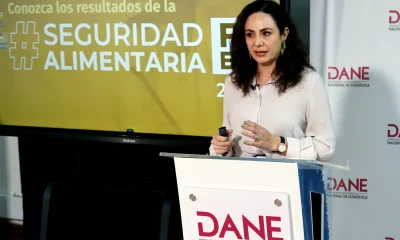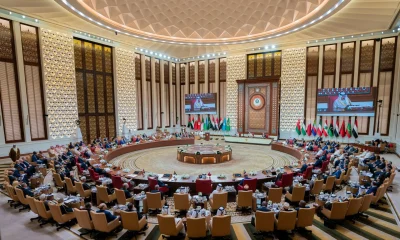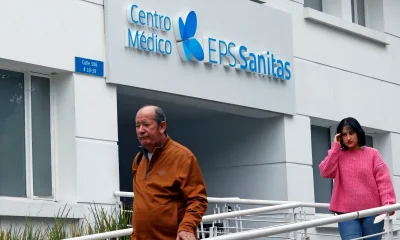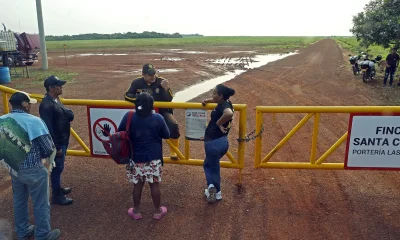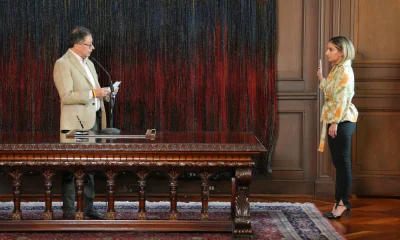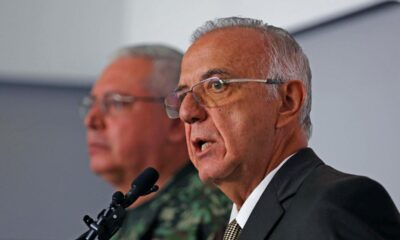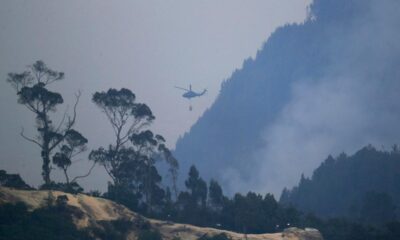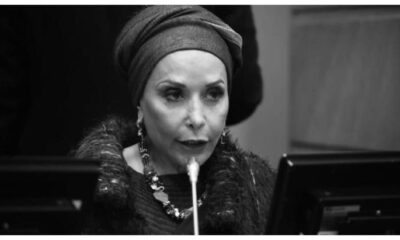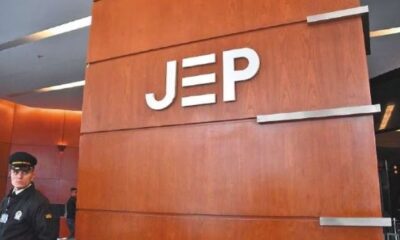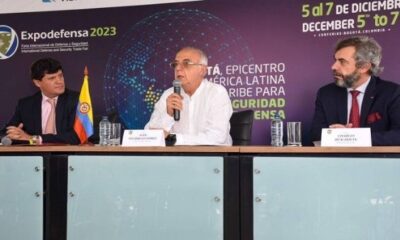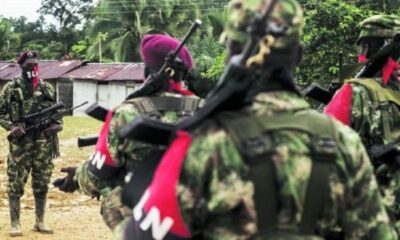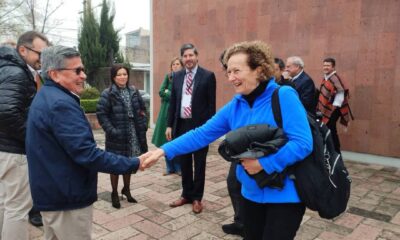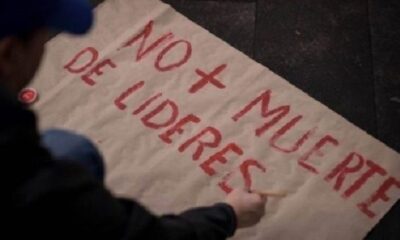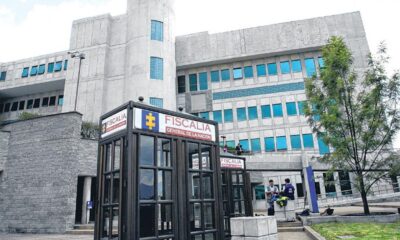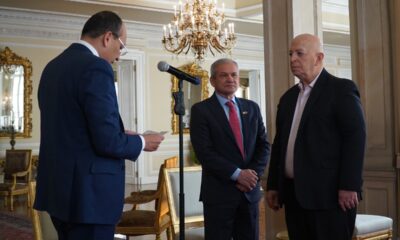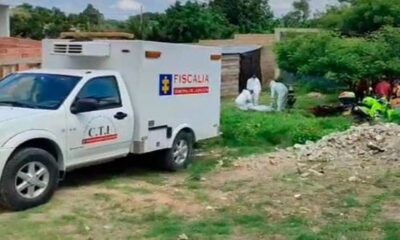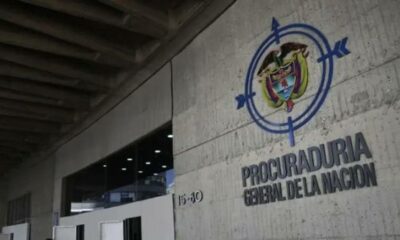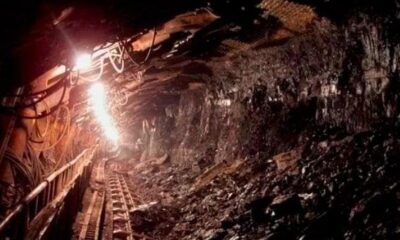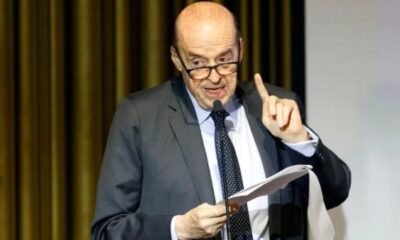International
Colombia’s crusade to repatriate its archeological heritage
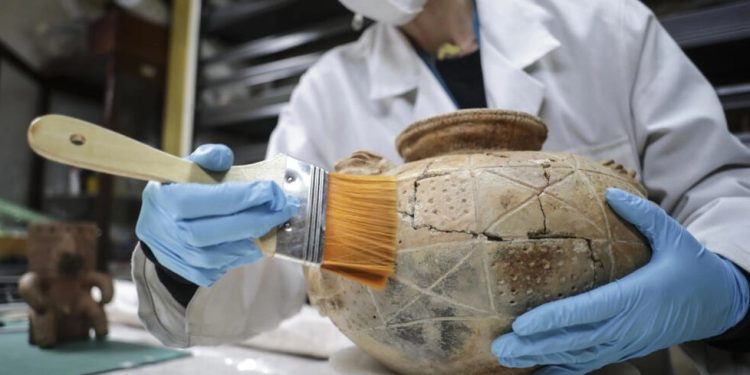
November 5 |
Wearing latex gloves and a white coat, restorer Carla Medina holds part of Colombia’s history in her hands. A growing number of pre-Columbian pieces are returning from abroad in an unorthodox way: President Gustavo Petro himself is bringing them back.
“It’s a great responsibility and a great privilege,” he tells AFP in his laboratory at the Colombian Institute of Anthropology and History (ICANH).
Medina, 41, analyzes a clay vessel repatriated from Italy, which had to be reconstructed from fragments. She is grateful “to have the opportunity to have access to an object that has so many years of history”.
At least 560 pre-Columbian pieces were returned from other countries aboard the presidential plane of leftist Gustavo Petro, in some of the more than 30 trips abroad that he has completed in just over a year in office. International tours criticized by the opposition as dispensable and costly.
Most of the pieces returned from the United States, United Kingdom, Belgium, Spain, Germany, Mexico, among other countries, in a coordinated work between the Foreign Ministry and ICANH.
One of the most recent returns was in October and took place on the diplomatic vessel Gloria, where 12 archeological pieces traveled from Costa Rica to Cartagena.
The recovery is part of a strategy of “efficient use of resources”, said at the time the former vice-minister of Multilateral Affairs, Laura Gil, and is advancing at an accelerated pace compared to the previous government, in which only 18 pieces were repatriated in four years.
For Catalina Ceballos, director of cultural affairs at the Foreign Ministry, it is a way to “start talking about decolonization from another perspective.”
Most of the pieces returned to Colombia were taken out of the country when there was no legal clarity in the world on the traffic of archaeological goods.
Only since 1997 has Colombian law recognized the State as the legitimate owner of national archaeological heritage.
However, the fight against illegal trafficking of these pieces has not been a priority in a country bled by half a century of armed conflict between authorities, guerrillas, paramilitaries and criminal gangs. While the budget suggested by the Presidency for ICANH in 2024 is equivalent to some 2.3 million dollars, that proposed for the defense area and the Police is almost 600 times greater.
Juan Pablo Ospina, coordinator of the anthropology group at ICANH, nevertheless emphasizes that in the current government repatriations have been “successful” because the presidential plane has been “fully available” to bring pieces “properly packed and safeguarded on those trips”.
Recent returns have been made mostly by private collectors on a voluntary basis and require diplomatic work in each country of origin. ICANH is then in charge of the registration, cataloguing, transfer, reception and, in some cases, intervention of the pieces.
As most of the repatriated works are ceramic, the restoration processes are simpler. “Even though they are very old, they can be very well preserved with the passage of time,” says Medina.
The most vulnerable materials are those “of an organic nature,” such as textiles, paper or wood.
The composition of the materials also offers details about how Colombia’s early societies functioned in relation to their territory, says Medina.
For the most part, the Colombian territory was made up of pre-Columbian societies distributed in small chiefdoms.
Ospina assures that what today corresponds to Panama, Venezuela, Colombia and part of northern Ecuador is known as the “intermediate zone” in Latin American archeology, “because what happened there is completely different from what happened in Mesoamerica or in the central Andes,” where great empires were formed.
That is why in Colombia, unlike in Mexico or Peru, it is not common to find palaces, pyramids or large goldsmith traces, with one great exception: the treasure of the Quimbayas. A collection of gold found at the end of the 19th century in a small village in the department of Quindío (west), donated at that time to the Queen of Spain by the Colombian president Carlos Holguín and which today is in the Museum of America in Madrid.
Most of Colombia’s archaeological treasures are ceramic pieces from different periods and cultures, some 6,000 and 7,000 years old, found in the Caribbean, Ospina explains.
“They are very early evidence of ceramics,” he adds.
In other Colombian regions the use of ceramics dates back to approximately 1,000 BC, present mainly in religious and funerary rites.
International
Bolivia Orders Three Investigations Into Deadly Military Plane Crash
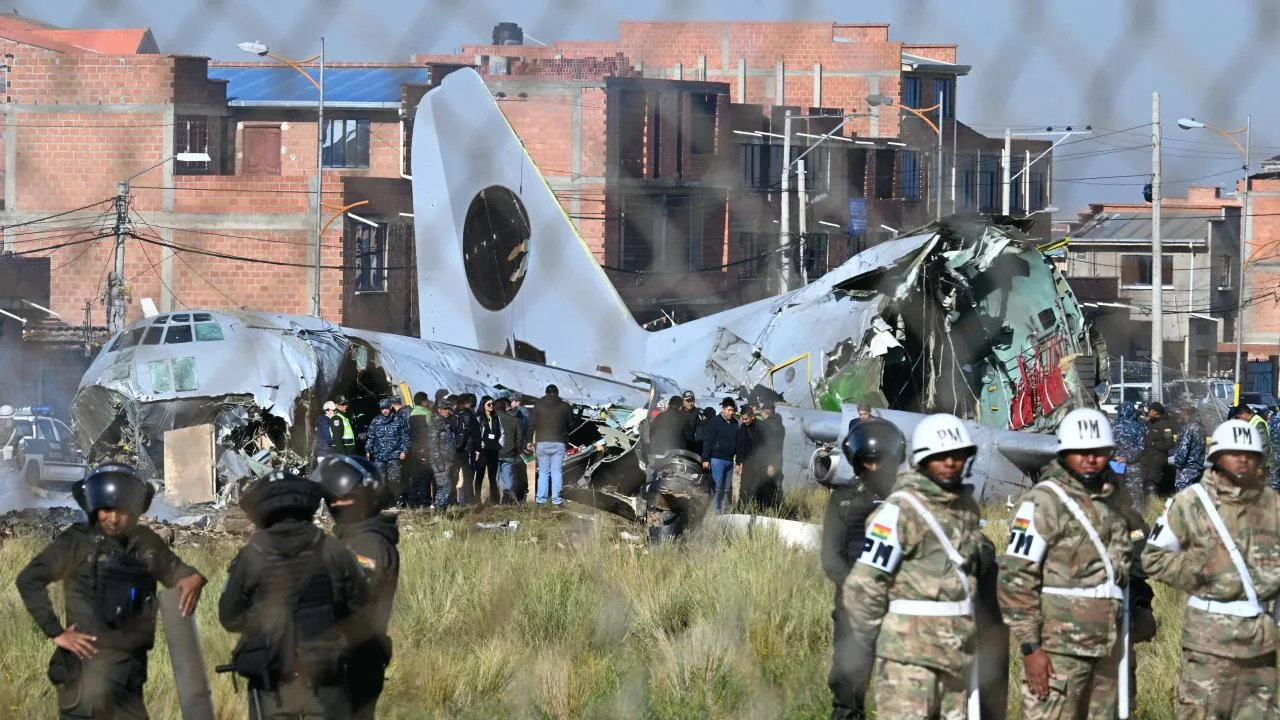
Bolivia’s Defense Minister Marcelo Salinas announced Monday that three separate investigations will be conducted into Friday’s crash of a military cargo aircraft at El Alto International Airport, near La Paz, which left at least 22 people dead.
The Hercules aircraft, operated by the Fuerza Aérea Boliviana (FAB), was transporting cash intended for the Central Bank of Bolivia when it overshot the runway after landing from the city of Santa Cruz. The plane reportedly traveled nearly one kilometer beyond the airport perimeter.
The incident sparked chaotic scenes, with individuals attempting to collect scattered banknotes. Authorities detained 51 people in the aftermath, and the government declared three days of national mourning.
Multiple Investigations Underway
The first inquiry is being led by a military board from the Bolivian Air Force, which has already taken custody of the aircraft’s black box for analysis.
Minister Salinas said two additional investigations will follow — one conducted by the insurance company and another by the aircraft’s manufacturer.
“At least two more investigations will come, that of the insurance company and that of the aircraft manufacturer,” Salinas said during a press conference in Santa Cruz.
He cautioned that the investigative process could take between three and six months, noting that the black box cannot be opened in Bolivia due to the lack of specialized laboratories for analysis.
Awaiting Official Findings
Salinas stressed that the FAB investigative board is the highest authority in the case and urged the public to wait for its conclusions to avoid speculation about the causes of the crash.
He also confirmed that the government has contacted the families of the 22 victims and the 37 injured, as well as the owners of 15 damaged vehicles, to coordinate procedures with the insurer and cover the corresponding expenses.
International
Mexico Calls for Immediate Probe After National Dies in ICE Custody
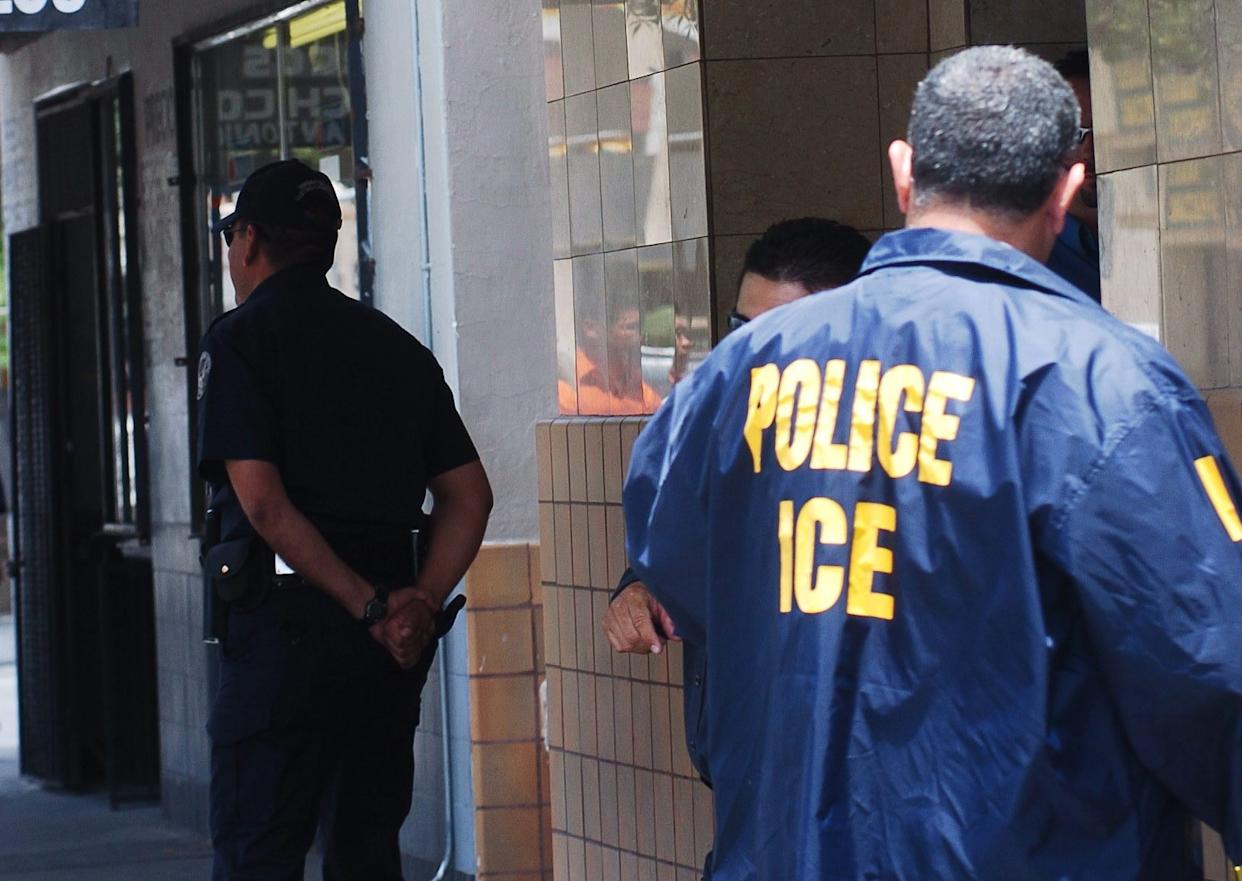
Mexico’s Secretaría de Relaciones Exteriores (SRE) on Monday called on U.S. authorities to conduct an “immediate and thorough” investigation into the death of a Mexican national while in custody of U.S. Immigration and Customs Enforcement (ICE) at a processing facility in California.
In a statement, the Mexican government described the death as “regrettable” and urged U.S. officials to clarify the circumstances surrounding the case in order to “determine responsibilities and ensure that such events do not happen again.”
Death at Adelanto Processing Center
According to available information, the Mexican citizen died at the Adelanto Processing Center in California while under ICE custody. Authorities have not yet released the individual’s identity or the cause of death.
Following the incident, Mexico’s Foreign Ministry formally requested “detailed information” from U.S. authorities, including the detainee’s medical records and custody reports.
Consular Assistance Activated
The Mexican Consulate in San Bernardino, California, has activated consular assistance protocols to provide ongoing support to the deceased’s family. Officials have contacted relatives to express condolences and offer legal guidance, as well as assistance with the necessary procedures to repatriate the remains.
“The handling of situations like this and the establishment of mechanisms to resolve them are priorities for the Government of Mexico,” the Foreign Ministry said, adding that it will formally request an investigation into any systemic conditions that may have contributed to such incidents.
Local Mexican media reported that seven Mexican nationals died while in ICE detention last year — the highest number recorded since the agency was created.
International
Anti-ICE Billboard Campaign Targets Immigration Spending in 31 U.S. Cities

More than 200 billboards criticizing U.S. Immigration and Customs Enforcement (ICE) began appearing Monday in 31 cities across the United States, including Miami, as part of a campaign highlighting the high cost of immigration enforcement operations for taxpayers.
The initiative, titled “ICE Costs Us,” was launched by the civil rights organization Mijente and will run for four weeks.
Criticism of Spending and Enforcement Tactics
The billboards feature images of ICE agents during arrests or carrying military-style weapons. According to the organization, spending on military-grade equipment for the agency has increased by 600 percent in recent years.
Several signs display messages such as:
“Your taxes are being wasted” and “ICE’s cruelty costs you $28 billion,” referring to the agency’s annual budget.
In a statement, Marisa Franco, co-founder of the Mijente Support Committee, said:
“For too long, our government has prioritized building cages and investing billions in an immigration enforcement apparatus that has left families torn apart and communities terrified.”
She added that “Millions of Americans are living paycheck to paycheck, yet this violent agency continues operating with a blank check. These decisions do not make us safer nor improve our economic security. Our billboards highlight these choices and demand a different path.”
Budget Debate and Medicaid Comparison
The campaign also draws a comparison between ICE’s funding and the estimated 17 million people who could lose health coverage under Medicaid due to federal budget cuts under President Donald Trump.
Other billboard messages seen in various cities include:
“They get billions to beat us; we get layoffs and rising rents” and “Funding ICE is a fast track to fascism.”
Organizers say the goal is to spark public debate about the allocation of federal funds for immigration enforcement and the broader economic and social impact of such policies on communities nationwide.
-

 International2 days ago
International2 days agoIran Reports 201 Dead, 747 Injured After U.S. and Israeli Strikes
-

 International5 days ago
International5 days agoCocaine Production Surges 34% in 2023 as Market Expands into Africa and Asia
-

 International4 days ago
International4 days agoTrump Floats “Friendly Takeover” of Cuba Amid Rising Tensions
-

 International2 days ago
International2 days agoPope Leo XIV Urges End to ‘Spiral of Violence’ in Middle East
-

 Sin categoría3 days ago
Sin categoría3 days agoTrump: ‘We Think It’s True’ Amid Claims Iran’s Supreme Leader Was Killed
-

 International3 days ago
International3 days agoSecurity Council to Hold Emergency Meeting on Middle East Crisis
-

 International21 hours ago
International21 hours agoBrazil’s Supreme Court Rejects Bolsonaro’s Bid for House Arrest
-

 International5 days ago
International5 days agoFederal Judge Blocks Trump Policy Allowing Deportations to Third Countries
-

 International4 days ago
International4 days agoArgentina’s Senate Reviews Milei-Backed Labor Overhaul
-

 International21 hours ago
International21 hours agoAnti-ICE Billboard Campaign Targets Immigration Spending in 31 U.S. Cities
-

 International5 days ago
International5 days agoClinton Accuses Republican Committee of Using Epstein Case to Shield Trump
-

 International21 hours ago
International21 hours agoTrump Warns of ‘Major Wave’ of Attacks as Iran Conflict Escalates
-

 International20 hours ago
International20 hours agoMexico Calls for Immediate Probe After National Dies in ICE Custody
-

 Central America20 hours ago
Central America20 hours agoPanama Canal Monitoring Trade as Middle East Conflict Disrupts Shipping
-

 International20 hours ago
International20 hours agoBolivia Orders Three Investigations Into Deadly Military Plane Crash































